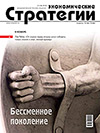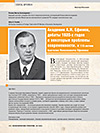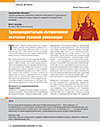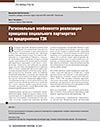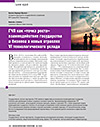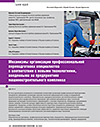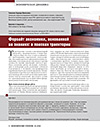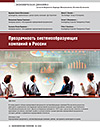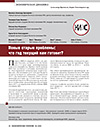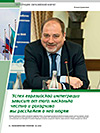Academician A.N. Efimov, Debates of the 1920s and Some Problems of the Present. To the 110th Anniversary of Anatoly Nikolayevich Efimov
The name of Anatoly Nikolayevich Efimov, the first director of Scientific Research Economic Institute under the State Planning Committee of the USSR (SREI), elected in 1955, is associated with fundamentally new stage in the history of planning after the end of the Stalin era in 1953. Pioneer and fundamental developments of the interbranch balance, awarded with the USSR State Prize in 1968, methodology for forecasting the country’s economy development, widely used today in the market conditions, have made up the content and novelty of this stage, as well as the main vector of SREI’s scientific research. The choice of these directions is not a flash of reason or sudden enlightenment. Their roots go not only into the environment, but also to the turbulent and dramatic events of the 1920s, which became a time of choosing the way of the country’s development, overcoming economic and cultural backwardness in conditions of isolation and a hostile external environment. Transition from the policy of “military communism” to the NEP, the broadest democratization of society served as a powerful impetus for development of planned economic thought.


